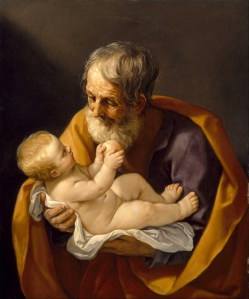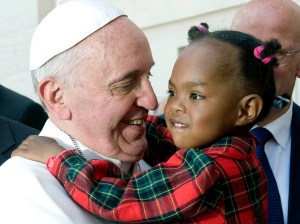
A young officer just recently promoted to detective is hit head on while leaving the courthouse, leaving behind a wife and four-year old daughter. A newlywed couple are tragically killed in a collision on their way to their honeymoon. A young bride full of faith dies a slow chronicled death to a cancer that gripped her body and wouldn’t let go in spite of thousands of prayers on her behalf. A nameless lady across the globe is violently and publically raped and beheaded because she would not deny her faith in Christ. Children with cancer, people dying of starvation, innocent victims of horrible crimes, the deaths of saints-the question that agnostics have posed for centuries and the question believers today fear most. If God is one of love and justice, why do seemingly innocent people suffer?
If you are reading this hoping I have the answer, you may as well stop reading now. I have studied, heard sermons, read articles and even searched scripture in my own quest to find my answer to this age old question but to date no one has adequately been able to answer the question as to the dichotomy of suffering and evil under the sovereignty of a loving God. Even Christ would not directly answer this when He was questioned about it in Luke 13. A tower in Siloam collapsed killing eighteen people who were simply at the wrong place at the wrong time. Jesus did not reply with why innocent blood was shed but rather impressed upon those who questioned Him the importance of living a life of repentance and preparation. There are those today who when asked about evil and suffering offer up the same handed down answers the church has always put forth-God’s ways are higher than ours, or it’s a sin issue, or God is sovereign and we just have to accept it. Perhaps these are the only real responses to the ultimate question, but it remains a weak apologetic argument when posed by those agnostic to the faith who would accuse us of a blind allegiance to a deity we can’t fully grasp or explain. Are they right?
I’ve wrestled with this in my own spiritual experience. Why me? What next? What have I done? Where is God or what purpose is served in this situation? Why teach me these lessons and not the next guy? In my Jim Carey voice, Aren’t I the Lucky One! Within the confines of a limited view I have tried to find an answer. This is the best I can come up with.
Why would God create a world where evil was existent? That answer is easy-He didn’t! God’s world was perfect, innocent, harmless, sufficient. Food was provided for man and animals alike from the vegetables and herbs. All creation lived in peace and harmony. But God wanted his creation, man, to love Him, not from default programming but from choice, a conscious decision to do so. For that to happen God had to allow man the option to choose-free moral agency. Consequently as with any choice the potential to choose wrongly exists. A serpent agnostic to God, the embodiment of evil, presented Eve with a choice. Eve chose of her own volition to go against the commands of God, took the forbidden fruit, persuaded Adam to do likewise and ushered in the element of disobedience and separation from God. It is this separation, the void, wherein evil resides. At that point pain entered into the world as Eve would bear children in great discomfort. Death entered as God said to dust they would return. Animals began to prey on each other. The knowledge of good created the possibility of evil just as the existence of light created the possibility of darkness.
To fully understand this concept one must understand and define evil. In the simplest of terms, evil is not a thing but a void. Cold is not a definable existence but rather a lack of heat. As above, darkness is not a natural thing but a lack of light. You don’t really make a room dark, you simply make it less lit which leaves the natural state of darkness. Likewise evil is presented even by the earliest attempts of definition as a void of goodness, thus the natural state when all else is removed. In searching for writings that support this I ran across perhaps the best I’ve seen, written by St. Maximus the Confessor, c 73;
“Evil never was and never will be on its own, for it has exactly neither substance nor nature nor hypostasis nor power nor energy in beings; it is neither quality nor quantity; neither relation nor replace; neither time nor position; neither creation nor movement nor habit nor passion, so that it contemplated anything existent…it is neither the beginning, the middle nor the end. Evil is the absence of energy inherent in all natural power toward the end and nothing else…”.
In other words, evil is absolute nothingness, void of all natural good, empty of all moral judgment, fully and completely lacking God. Another way of saying this is that Evil is what’s left when God is removed, the natural unconfessed state of godlessness. So, where does this leave us and how does it apply to the question at hand? At the very least it takes away our reasoning to blame God for evil. It gives us much more insight into the passage recorded in James 1:13 that says “no one should say “God is tempting me” for God cannot be tempted by evil, nor does He tempt anyone”. God and evil can not coexist any more than light can exist simultaneously with darkness or cold with heat. This then takes us to part two of the question; if then God is still sovereign, why does he allow suffering?
It is perhaps only at this point that any attempt to answer this adequately becomes simply conjecture. There is really no response satisfactory to human logic one can offer to which one would reply, “Oh, okay, now I get it”. The only real approach I can come up with is to take a look at history and patterns in comparison to our limited definition of fairness and justice. We are programmed in great error by authors of “Blessed and Highly Favored” type books, Claim your Reward sermons and Prosperity doctrines that are in opposition to the recorded Word. While the natural, less Godly nature wants to question suffering as unfair, we really need to take a closer look at history, going back to the beginning. Abel offered up to God a pleasing sacrifice and from all accounts was a friend of God. However that did not stop Cain from taking his life, an act that we would surely deem unjust by our definition. Fast forward to Job. Scripture says there was not a man in all the world as righteous and right standing before God, yet we are fully aware of the calamity that God allowed him. Job’s questions were much like ours-why me, what did I do wrong, how is this fair? God’s famous non-answer is on record. When we can dictate weather patterns, explain birth and create our own species, we can expect an answer.
But it doesn’t stop with Job. The perfect sinless man, the sacrificial Lamb of God, Christ bore suffering through crucifixion so severe we derive the word “excruciating” from it. No one in history was less deserving of suffering than our Lord. More evidence, consider the Apostles who lived life with Jesus, shared stories, sat under His teaching, witnessed His miracles, His death and victorious resurrection. Defenders of the faith, seed planters of the early church, miracle workers in their own right; and all but John martyred brutally for their belief and testimony in spreading the Gospel. Just? Fair? If our concept of blessing and favor was withheld from the saints, are we somehow more deserving of a life without pain, one affected and infected by evil? It should be just as logical to deduce that if they were not spared, why should we be? Jesus was very clear-did not mix words when he said during the beatitudes message that those who were persecuted would be blessed, inferring persecution and suffering was eminent. He later said in John 16 that in this world we would have troubles! Yet He went on to say to “take heart because He had overcome the world”.
1 Corinthians 13:12 says ” now we see through a glass darkly; (or as a reflection in a mirror); but then we will see everything clearly”. Matthew Henry says that it is only the light of Heaven that will remove all clouds and darkness that hide the face of God from us. Only then will we have answers to questions that at that point will be irrelevant and non-consequential. For now we must suffer those things that will be used to bring us into a closer relationship with God. For now we must receive comfort during trials that we can in turn use to comfort others who encounter the same testing. For now we must know that His strength is made perfect in our weaknesses. For now we must praise him in chains, worship Him in storms, hold fast to Him in emergencies and crisis and try with all our energy and strength to maintain the attitude of Habakkuk of old when he said in chapter 3;
“Though the fig tree doesn’t bud, there are no grapes on the vine, the olive crops fail, the fields produce no crops, though there are no sheep in the pens or cattle in the stalls, yet will I be joyful in God my Savior”.
This is as close as I can come to answering an unanswerable question. It will have to do until I can see through the glass clearly. God bless you and grant you peace in your walk.


















